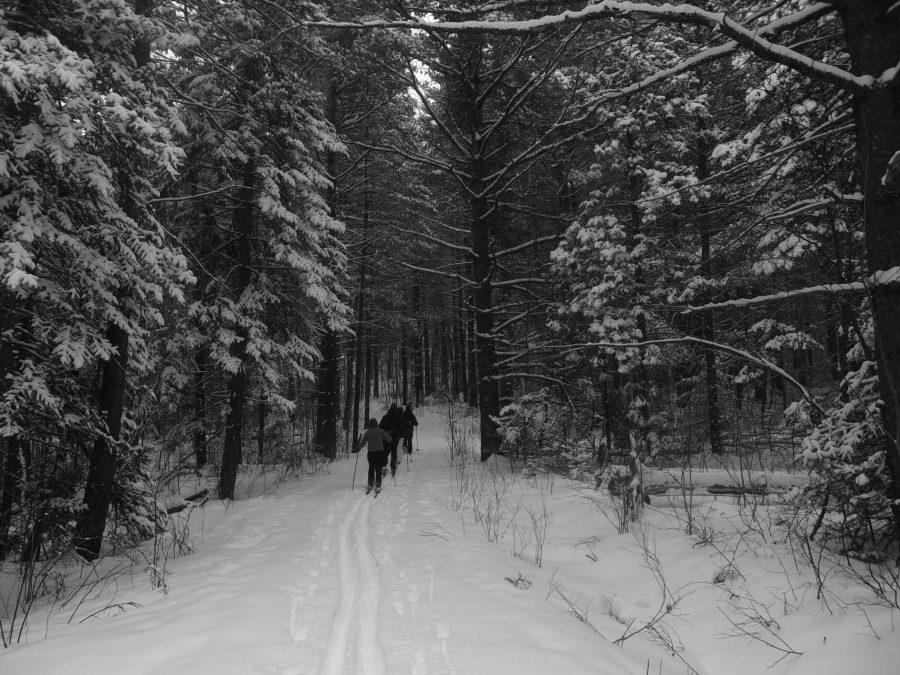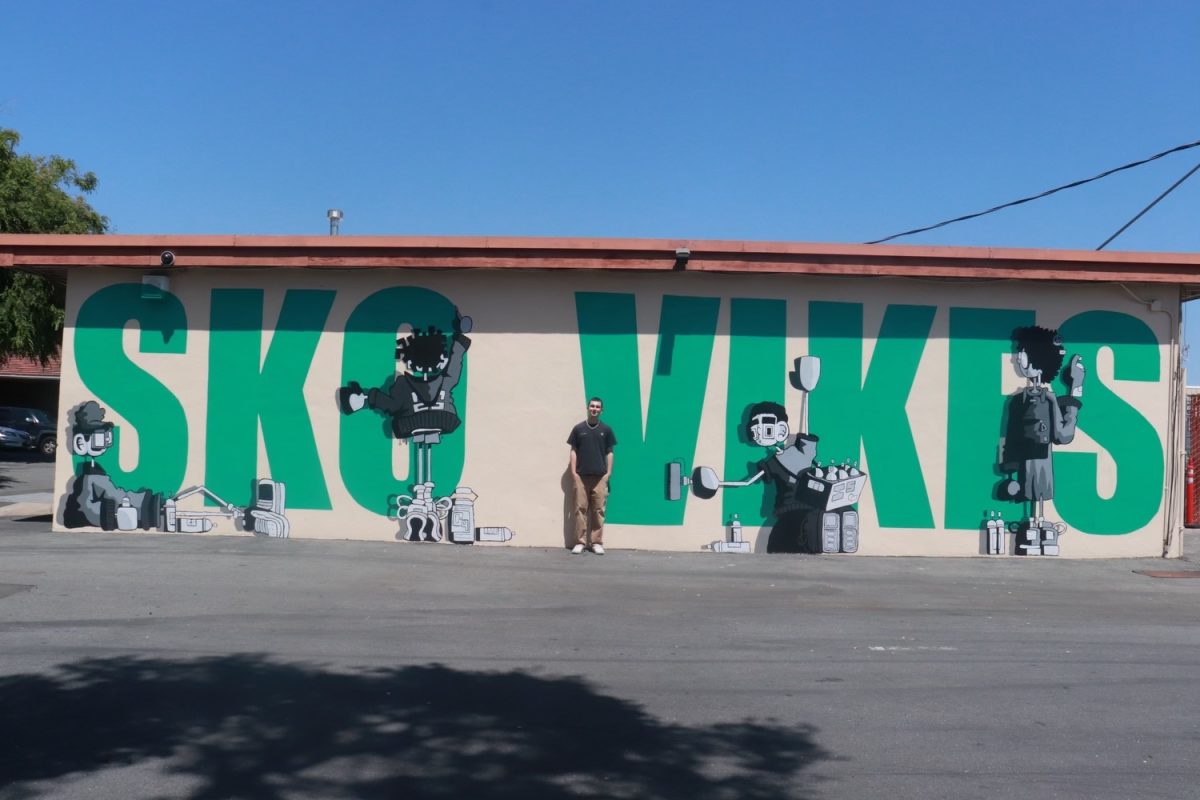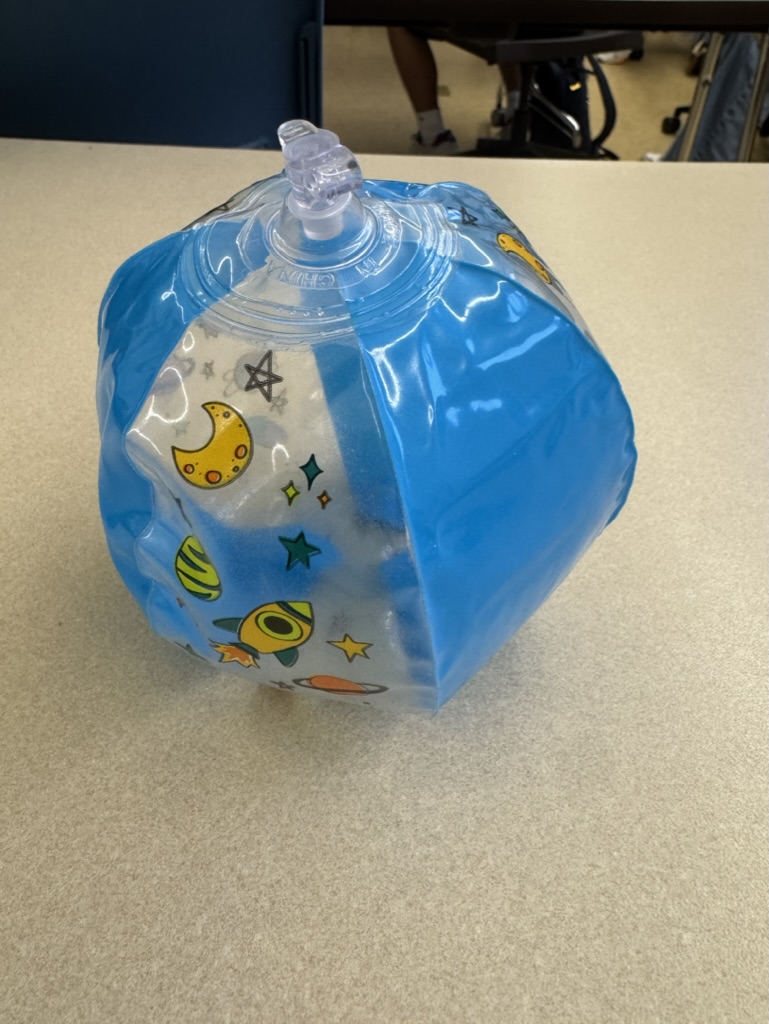Classroom in a forest: Mountain School provides great alternative to traditional education
May 5, 2023
Face planting into 12 inches of freshly fallen snow. Tapping a maple tree and watching as clear sap flows through a web of tubes, all leading to the sugar house. Running to the dining hall between classes for a toasted slice of sourdough, topped with butter and raw honey. Check-ins at 9 p.m. every night. Singing, laughing, crying with friends who know me better than anyone else.
These experiences are all from my time at The Mountain School, a semester-long program for high school juniors located on a farm in Vershire, Vt. I am one of 42 students from all around the country immersed in nature who live, study and work on a farm faculty.
One of the reasons I am enjoying my time at TMS so much is because of how accessible nature is. Going outside is incorporated into the academic curriculum, and it is encouraged in every way possible.
Being able to go outside and off central campus whenever I want gives me plenty of independence. I don’t have to worry about adults who think I can’t take care of myself — the faculty at TMS allows me to do almost anything without supervision. I can go on sunrise hikes with my dorm, or ski and sled on the trails around central campus with friends.
Going outside, even for a quick walk between my dorm and the dining hall, also has many health benefits. While we walk outside between classes at Paly, TMS walks are so different. I know everyone I pass by, the world around me is so quiet and I am literally in the middle of a forest. These walks help me clear my head, reset and reflect. Honestly, this sounds so cheesy, but think about how you feel during and after a walk or hike — assuming you are not on your phone.
I also feel supported by my teachers both academically and personally at TMS. TMS teachers can dedicate time and effort to a smaller student body than at Paly, which means I get more individualized attention. For example, all of my classes have fewer than 10 students, making it easy for everyone to share their perspectives and opinions.
I’ve always felt that at Paly, many teachers have so many classes with so many students that they can’t pay attention to or build relationships with each individual. It seems as though many Paly teachers are so swamped with grading assignments that they don’t even get to know who their students are.
TMS teachers, however, can take the time to get to know students beyond grades by leading Saturday night activities and having nonacademic conversations during meals or after classes. This emphasis on building relationships allows me as a student to feel integrated into the community, which creates a comfortable environment for learning.
Additionally, TMS values meaningful work over busywork. Relevant homework allows me to engage even further with classroom material and develop a better understanding of the concepts. This approach to education encourages students to genuinely care about our work beyond just receiving a good grade, which motivates us to invest more time and effort into assignments.
At TMS, I am surrounded by people who all left their traditional schools for similar reasons — we wanted a change of scenery, and we’re interested in the outdoors. But with only 42 students on campus, I feel slightly confined at times. Being around the same people all the time while learning, working, eating and sleeping can be claustrophobic.
However, I’ve learned to adapt by spending time alone and reflecting — mainly on hikes and during my chores.
Nevertheless, I am loving almost every part of TMS, and no experience will ever feel the same.







